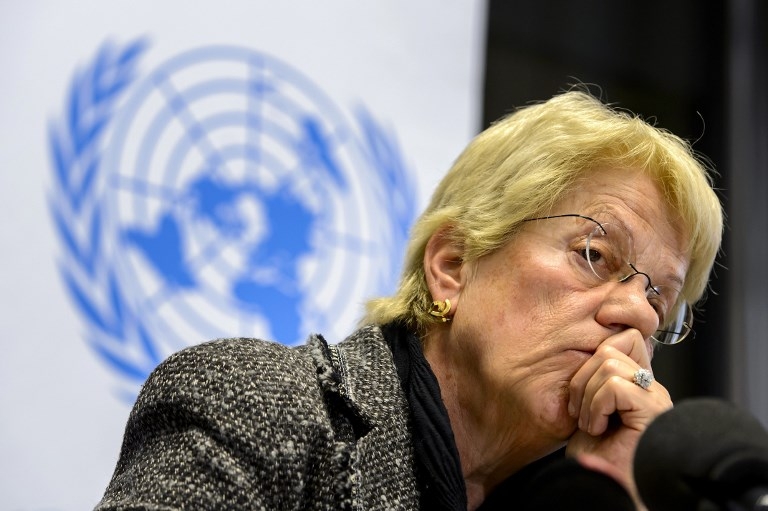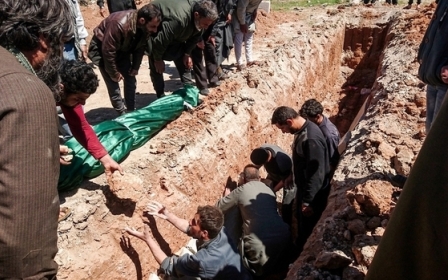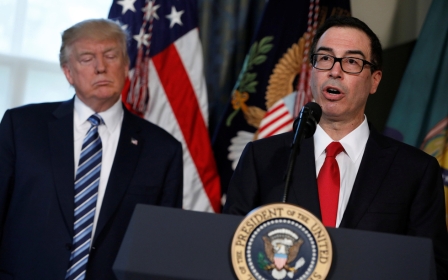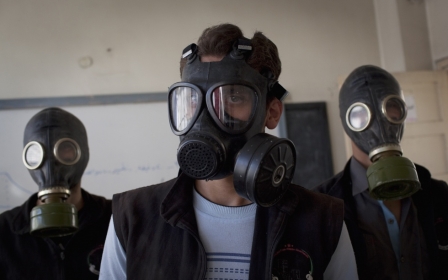Syria investigator Del Ponte to quit, blames UN Security Council

A member of the UN commission of inquiry on Syria said on Sunday she was quitting because a lack of political backing from the Security Council had made the job impossible, Swiss national news agency SDA reported.
Carla Del Ponte, 70, who prosecuted war crimes in Rwanda and former Yugoslavia, told a panel discussion on the sidelines of the Locarno film festival that she had already prepared her letter of resignation.
"I am frustrated, I give up," Del Ponte said. "I have written my letter of resignation and will send it in the next few days."
"I have no power as long as the Security Council does nothing," she said. "We are powerless, there is no justice for Syria."
Del Ponte, a former Swiss attorney general, joined the three-member Syria inquiry in September 2012, chronicling incidents such as chemical weapons attacks, a genocide against Iraq's Yazidi population, siege tactics, and the bombing of aid convoys.
She said that "everyone in Syria is on the bad side. The [Bashar al-] Assad government has perpetrated horrible crimes against humanity and used chemical weapons. And the opposition is now made up of extremists and terrorists," the BBC reported.
The UN commission of inquiry said in a statement that Del Ponte had informed colleagues in June of her decision to leave in the near future. It said the investigations would continue.
"It is our obligation to persist in its work on behalf of the countless number of Syrian victims of the worst human rights violations and international crimes known to humanity," it said.
Del Ponte's departure leaves only two commissioners, Brazil's Paulo Pinheiro and Karen Koning AbuZayd from the United States.
The commission was set up in August 2011 and has regularly reported on human rights violations, but its pleas to observe international law have largely fallen on deaf ears.
Although the United Nations is setting up a new body to prepare prosecutions, there is no sign of any court being established to try war crimes committed in the six-and-a-half-year-old war, nor of any intention by the UN Security Council to refer the situation to the International Criminal Court in the Hague.
Del Ponte's determination to be independent made her outspoken and occasionally controversial. She shocked Western governments in May 2013 by declaring that the United Nations had "strong suspicions" about Syrian rebels using sarin gas.
Two years later, she said justice would catch up with Syrian President Bashar al-Assad, even if he remained in power under a negotiated peace settlement.
Earlier this year, when the commission reported on Syrian government aircraft deliberately bombing and strafing a humanitarian convoy, Del Ponte hinted at her frustration with the inability to bring the perpetrators to justice.
"What we have seen here in Syria, I never saw that in Rwanda, or in former Yugoslavia, in the Balkans. It is really a big tragedy," she added. "Unfortunately we have no tribunal."
Middle East Eye propose une couverture et une analyse indépendantes et incomparables du Moyen-Orient, de l’Afrique du Nord et d’autres régions du monde. Pour en savoir plus sur la reprise de ce contenu et les frais qui s’appliquent, veuillez remplir ce formulaire [en anglais]. Pour en savoir plus sur MEE, cliquez ici [en anglais].




